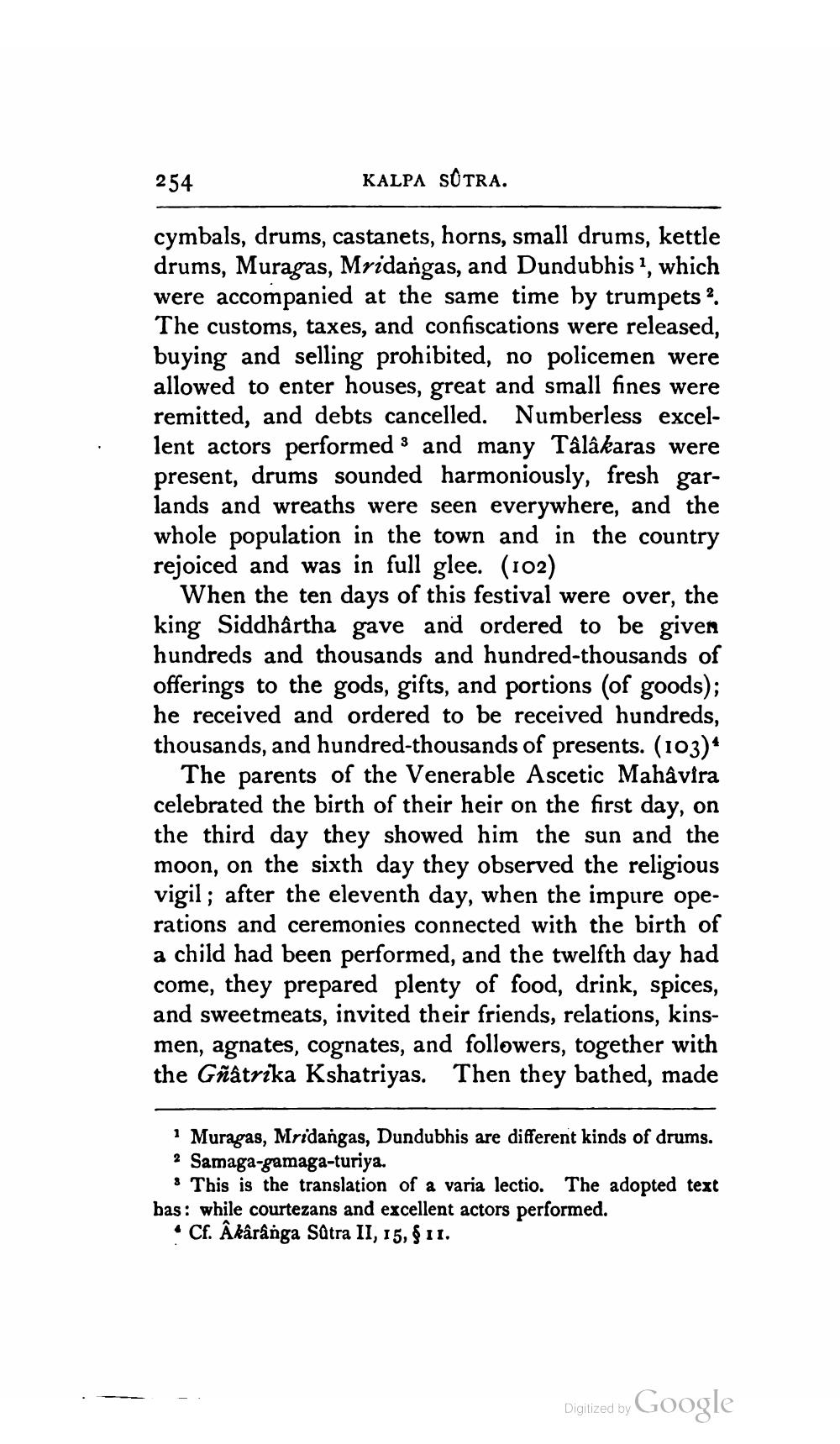________________
254
KALPA SOTRA.
cymbals, drums, castanets, horns, small drums, kettle drums, Muragas, Mridangas, and Dundubhis !, which were accompanied at the same time by trumpets ?. The customs, taxes, and confiscations were released, buying and selling prohibited, no policemen were allowed to enter houses, great and small fines were remitted, and debts cancelled. Numberless excellent actors performed 3 and many Tâlâkaras were present, drums sounded harmoniously, fresh garlands and wreaths were seen everywhere, and the whole population in the town and in the country rejoiced and was in full glee. (102)
When the ten days of this festival were over, the king Siddhartha gave and ordered to be given hundreds and thousands and hundred-thousands of offerings to the gods, gifts, and portions (of goods); he received and ordered to be received hundreds, thousands, and hundred-thousands of presents. (103)
The parents of the Venerable Ascetic Mahavira celebrated the birth of their heir on the first day, on the third day they showed him the sun and the moon, on the sixth day they observed the religious vigil; after the eleventh day, when the impure operations and ceremonies connected with the birth of a child had been performed, and the twelfth day had come, they prepared plenty of food, drink, spices, and sweetmeats, invited their friends, relations, kinsmen, agnates, cognates, and followers, together with the Gñatrika Kshatriyas. Then they bathed, made
1 Muragas, Mridangas, Dundubhis are different kinds of drums. ? Samaga-gamaga-turiya
: This is the translation of a varia lectio. The adopted text bas: while courtezans and excellent actors performed.
• Cf. â kârânga Sätra II, 15, $11.
Digitized by Google




